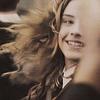Take a photo of a barcode or cover
Classico della letteratura inglese che solitamente viene considerato di una noia pazzesca, invece ho dovuto ricredermi: Oliver Twist, orfano e cresciuto per la strada, non riesce ad arrendersi alla criminalità a cui sembra essere destinato, preferendo l'onestà, ma tutto rema contro di lui. Finché non viene preso sotto la buona ala della dolce Rose, che lo accudisce e lo aiuta a far emergere la verità. Ed è proprio qui che comincia l'azione: tra personaggi che lo vogliono morto, sotterfugi, omicidi, vecchie bugie e verità nascoste, il romanzo diventa un thriller molto avvincente.
Di Dickens avevo sempre e solo letto A Christmas Carol, ma credo che gli darò maggiori opportunità.
Di Dickens avevo sempre e solo letto A Christmas Carol, ma credo che gli darò maggiori opportunità.
i've only ever read one other dickens, that wonderful realist/gothic bildungsroman great expectations. and, without sounding like a patronizing dick, it's impressive that he managed to get from oliver twist to great expectations by the end of his career.
there are a few things i enjoyed about twist - particularly the humorous hypocrisy and domestic farce from its minor characters (the bumbles) - but mostly this was a real slog. it's antisemitism through fagin and barney (the first time i've read of a character with the same name as me, represent barney!) was incessant and particularly exhausting: 'the jew' did this, 'the jew' did that. also, oliver twist is actually the WORST. he's the clingiest, most annoying do-gooder. the amount of time he is moved to 'happy tears' by his patron wishing him a good morning, or declaring they just enjoyed a nice piece of toast, or learning that they took a nice stroll outside or something - i cannot cope.
so i've made a mental note to stick with late dickens from now on, and stick with rewatching oliver! instead.
there are a few things i enjoyed about twist - particularly the humorous hypocrisy and domestic farce from its minor characters (the bumbles) - but mostly this was a real slog. it's antisemitism through fagin and barney (the first time i've read of a character with the same name as me, represent barney!) was incessant and particularly exhausting: 'the jew' did this, 'the jew' did that. also, oliver twist is actually the WORST. he's the clingiest, most annoying do-gooder. the amount of time he is moved to 'happy tears' by his patron wishing him a good morning, or declaring they just enjoyed a nice piece of toast, or learning that they took a nice stroll outside or something - i cannot cope.
so i've made a mental note to stick with late dickens from now on, and stick with rewatching oliver! instead.
Obviously this is a classic and blah blah blah, but a few quick notes as to why it gets three stars instead of 4 or 5:
First off, it was impossible to not notice the anti-Semitism with which Fagin was depicted. He's just SUCH a hardcore stereotype that it was pretty distracting. Which isn't to say he wasn't an effective villain, or that he wasn't even creepier than the psychotic Sikes, it's just to say that the anti-Semitism was excessive and distracting.
The second point is that I have difficulty with any Victorian literature that portrays its characters as totally pure. It seems to be a trend in Vic Lit (which I'm totally taking the credit for coining) to make the heroes pure, and it makes them insanely boring. I could not give two shits about Oliver Twist or Rose, but I wanted to hear more on the Artful Dodger, Sikes, Nancy, Fagin, and Charley Bates. It makes the villains the only people in the story that feel real, and this can be frustrating sometimes, because in Vic Lit, the bores always win.
It's obviously a great piece of social criticism, and I appreciate that, but my final and third thought is this: the "umph" of the brutality of Oliver's upbringing was kind of sucked out by the revelation that he was actually of relatively high birth, and his angelic nature that refused to turn bad SEEMED to support the type of thinking that people of "higher birth" are purer than the low people of the streets, like the criminalized Nancy, Dodger, and Bates. While you've gotta praise Dickens for condemning the conditions in London at the time, these ideas make the book hard to really feel gung-ho about in terms of its politics, unlike, say, Les Miserables.
First off, it was impossible to not notice the anti-Semitism with which Fagin was depicted. He's just SUCH a hardcore stereotype that it was pretty distracting. Which isn't to say he wasn't an effective villain, or that he wasn't even creepier than the psychotic Sikes, it's just to say that the anti-Semitism was excessive and distracting.
The second point is that I have difficulty with any Victorian literature that portrays its characters as totally pure. It seems to be a trend in Vic Lit (which I'm totally taking the credit for coining) to make the heroes pure, and it makes them insanely boring. I could not give two shits about Oliver Twist or Rose, but I wanted to hear more on the Artful Dodger, Sikes, Nancy, Fagin, and Charley Bates. It makes the villains the only people in the story that feel real, and this can be frustrating sometimes, because in Vic Lit, the bores always win.
It's obviously a great piece of social criticism, and I appreciate that, but my final and third thought is this: the "umph" of the brutality of Oliver's upbringing was kind of sucked out by the revelation that he was actually of relatively high birth, and his angelic nature that refused to turn bad SEEMED to support the type of thinking that people of "higher birth" are purer than the low people of the streets, like the criminalized Nancy, Dodger, and Bates. While you've gotta praise Dickens for condemning the conditions in London at the time, these ideas make the book hard to really feel gung-ho about in terms of its politics, unlike, say, Les Miserables.
I really didn't know much about Oliver Twist prior to reading it. The only thing I knew was that Oliver was an orphan and he asks if he can have some more food and it gets him in trouble. And you find all of that out within the first 15 or so pages...
Needless to say, I had no idea the book was so dark and depressing. Sure, there are happy redeemable moments. But for the most part, we get it glimpse of the society present in London during Dickens' life. I'm usually not big on books with huge political statements, but if the people at the time of the books release felt the same disgust and hatred towards the system, then the book did its job.
Overall, I wasn't crazy about the book. It was a slow read and pretty depressing. But I can now say I've read one of the classics! Probably the most surprising aspect of the whole book was finding out Oliver & Company (one of my favorite Disney movies) was based on this novel! Mind blown!!
Needless to say, I had no idea the book was so dark and depressing. Sure, there are happy redeemable moments. But for the most part, we get it glimpse of the society present in London during Dickens' life. I'm usually not big on books with huge political statements, but if the people at the time of the books release felt the same disgust and hatred towards the system, then the book did its job.
Overall, I wasn't crazy about the book. It was a slow read and pretty depressing. But I can now say I've read one of the classics! Probably the most surprising aspect of the whole book was finding out Oliver & Company (one of my favorite Disney movies) was based on this novel! Mind blown!!
I am kind of a sucker for Dickens, slowly but surely so. Very interested in the way themes, or at least repetition, works in the novel. Sleeping Oliver, nature versus nurture, boots, conflation of Rose and Nancy (spoiler: and my subsequent heartbreak), antisemitism, Master Bates (that one took me a while)... Very interesting as a politically challenging book that needed to still fit in with certain tropes of the time to be read at all...
This was the first full Dickens I've read other than Christmas Carol, and it was such a powerful read. Dickens is a genius! He's so witty and snarky but then so insightful and tender! This was a wonderful read aloud with my boys!
I really liked listening to Great Expectations and David Copperfield, so I expected to like this as well. And I did! Until I got about halfway through and completely lost interest. I made it as far as Oliver living with Mrs. Maylie. I knew Nancy's death was coming and it was bumming me out so I decided to just quit.
Perhaps I will come back to this someday, but I think I read enough to know that this is not Dickens' best. Oliver is a boring character. The best part is Dickens pointing out how completely unfair the world is for the poor. Fagin calling everyone "my dear" will haunt me, as well as him being constantly referred to as "the Jew."
Perhaps I will come back to this someday, but I think I read enough to know that this is not Dickens' best. Oliver is a boring character. The best part is Dickens pointing out how completely unfair the world is for the poor. Fagin calling everyone "my dear" will haunt me, as well as him being constantly referred to as "the Jew."
I'd read Great Expectations some time ago and enjoyed it very much, so I decided to read Oliver Twist, expecting a similar story. I found the tone at the beginning of the novel very satirical through its provision of critical social commentary on the age that Dickens lived in, and its treatment of poor and orphaned children. However, as the novel develops, Dickens then takes up his trademark tone, with his memorable characters and intertwining story-lines that converge by the novel's end.




